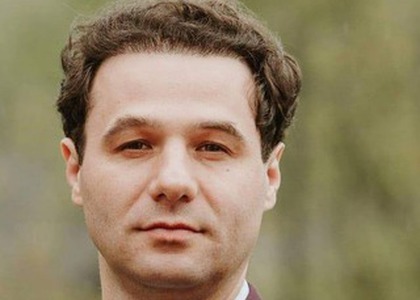> [Archived] Interviews

Interview with Andrei Fermeșanu, interim manager of the Romanian National Opera in Iași
Mr Andrei Fermesanu, at the beginning of September, the Iași National Opera opened its new season with Giuseppe Verdi's Traviata. How were the performances received by the Iasi audience?
It was a season that really got off to a good start. These performances were very well received. For two and a half years we have been presenting the show with a double cast, whether we are talking about opera or ballet performances, and we also have an audience that buys these tickets. We will continue in this way throughout the season, especially when we are talking about big titles that have sets and scenery to match. At the same time we increase the number of performances and we manage to reach as many spectators as possible and of course we save this time because the large auditorium of the National Theatre and the National Opera is divided - 15 days are ours, 15 days are the National Theatre's and then on these days we have to combine as many performances as possible.
On the 11th of October, the Opera from Iasi is invited to give a performance as part of the 22nd edition of the Sibiu Opera Festival. What will you present to the audience?
We will present one of Donizetti's masterpieces, Don Pasquale directed by Victor Zaharia, a young director who works for the National Opera of Iași and we chose to leave this direction in his hands and here we chose well, because it is one of the appreciated, beautiful, effervescent and I say, suitable productions for this first collaboration with the Sibiu Philharmonic, which organizes an opera Festival of national scope.
On the 25th of October, two titles belonging to the Romanian opera will be presented for the first time on the stage of the Sibiu Opera. What exactly are they about?
It is A Paschal Candle by Alexandru Zirra, the famous composer, who was also the director of the Conservatory of Iasi, of the Institute of Music and Theatre in Chernivtsi and from 1940 director of the National Opera in Bucharest for one year. So, here we have a musical personality with national influence and on the same evening we also present A Stormy Night by Paul Constantinescu, both works based on Caragiale's writings. We believe that these are inspired choices and that they highlight Romanian creation on Opera Day - because the 25th of October is World Opera Day. Also, for A Stormy Night, because we were talking about promoting young talent, Cristi Avram, the second young director in the house, signs the direction. A Paschal Candle, being a world premiere, will be presented in a concert manner, and during the season we will find the opportunity to stage it with all the elements.
Next, what does the programme for the 2023-2024 season of the Iași Romanian Opera look like?
It looks good, we say, and we hope it will sound just as good. We will continue with Tosca on the 3rd and 4th of November. It's also the opera's anniversary, this year it celebrates 67 years of existence and generations of artists who have served the stage. We continue with a gala dedicated to and featuring mezzo-soprano Ramona Zaharia and our latest production of Giuseppe Verdi's The troubadour. Of course, we also have premieres for 2024. The premieres are in strict dependence and coordination with the budget we will receive for the following year, but we are already thinking about Puccini's Turandot, all the more so as 2024 will be Puccini's centenary. It will be a totally exceptional novelty, because it has never been staged in Iași. It would be a very special premiere. The casts, as I have always said, will be made up of both established artists of the house and we will take into account especially those names that are honored, renowned and have an international career, whether they are Romanian or of another nationality.
Translated by Vlad-Cristian Dinu,
University of Bucharest, Faculty of Foreign Languages and Literatures, MTTLC, year I
Corrected by Silvia Petrescu














